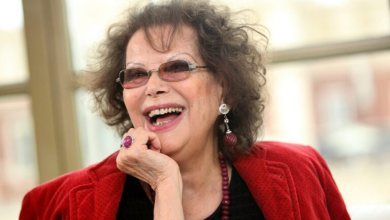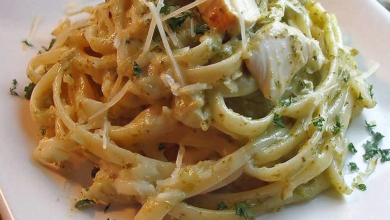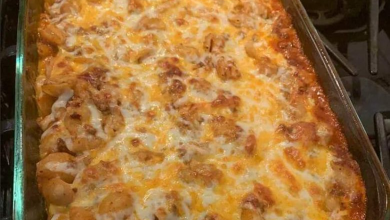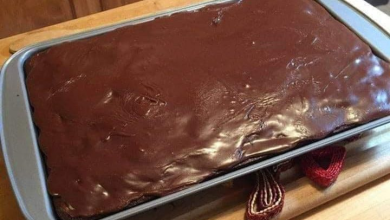Grandma’s Last Gift


The night my aunt handed me Grandma’s note, I read it over and over until the letters blurred. Her handwriting was shaky, but her words were steady:
“Your parents will try to take this from you. Don’t let them. You’ve always been the one who needed a chance. Take it.”
It felt like both a warning and a hug. I cried like a child on the twin bed in the apartment I had finally managed to rent.
I wasn’t the favorite. My parents were loud—opinions, expectations, ultimatums. My brother was the charmer; his mistakes always came with second chances. I was quiet, weighed down by student loans, a breakup that emptied my savings, and a job that drained me daily. But Grandma saw me. Her inheritance wasn’t large, but it paid off my credit cards, cleared my car loan, and gave me something I’d never had before: space to breathe. And belief.
When I refused to sign the papers—money for my brother’s startup, part to ease my parents’ mortgage—they stopped speaking to me. My mom texted, “You’ve changed.”
I answered, “Maybe I finally got honest.”
She never replied. The silence hurt, but eventually, it felt like peace.
I quit the marketing job that hollowed me out and started working part-time at a downtown bookstore. It didn’t pay much, but it gave me back my breath. At night, I wrote. I’d been filling notebooks since middle school, but I never thought the words mattered. Grandma did.
“You’ve got a voice, honey,” she’d say, catching stray pages on her kitchen counter.
“Don’t let the world silence it.”
So I posted a few short pieces online under a fake name, expecting nothing. But instead of vanishing into the void, they found people—kind, quiet souls who said my words made them feel seen. I kept it to myself. Then I met Liana at the bookstore. She listened more than she spoke, remembered small things, and made my heart skip like a record hitting its favorite groove. One autumn evening, walking home through crunchy leaves, I told her about the inheritance.
“She must’ve really seen you,” she said.
I nodded. For once, I didn’t cry.
Liana became the second person to read my work. She curled up on my couch with printed pages and a pen, filling the margins with notes:
“This line hits.”
“Say the thing you’re avoiding.”
“You have something to say.”
And when she said it, I believed her.
Six months later, I self-published a small collection. It didn’t go viral, but it reached the right people. An editor emailed me: “Ever thought about writing a novel?”
I stared at the subject line until it blurred, then forwarded it to my aunt.
“She was right.”
My aunt replied: “She always was.”
The first draft was chaos. The second hurt. By the third, I felt like I was bleeding truth. It was fiction, technically, but every page held a piece of Grandma and the selves I had buried. A year later, the book was out. No billboards, no launch party—just enough attention to feel real. A podcast invite. A morning show. A librarian wrote to say a teenager in her town felt seen because of my story. That moment mattered most. Someone was listening.
Then my brother walked into the bookstore. No warning—just a tailored coat and that familiar grin. I nearly dropped a box of bookmarks.
“Hey, sis,” he said, like we hadn’t gone months without a word.
I braced for the pitch.
“I read your book,” he said. “I cried.”
We sat outside a nearby coffee shop. He told me the business failed, that he’d moved back home, and our parents were furious—“for letting me get away with the money.”
“I didn’t let you do anything,” he said. “You did the right thing. I just didn’t see it.”
It wasn’t quite an apology, but it was something—a crack in the wall.
I told him about Grandma’s note. He looked at the street.
“She loved you differently,” he said.
“I thought it wasn’t fair. Maybe she saw what we didn’t.”
The book did better than I ever expected. I spoke at two universities. My agent—still strange to say—called one morning: a film company wanted to option the rights. I stood in my kitchen, toast untouched, and whispered, “Thank you, Grandma,” to the quiet.
Then another letter arrived. No return address. Inside was Grandma’s original will—not the version my parents had shown me. This one left me everything: the house, the land, the art, the savings. Tucked inside was a single line:
“If they try to change the story, tell your own.”
Turns out, my parents had forged a version and tried to push it through. But Grandma, ever careful, had mailed the real one to a lawyer in another state, instructing him to send it to me a year after her death.
I could’ve gone public, pressed charges—but I didn’t. I sent them a copy with a note:
“I know.”
They never replied.
My aunt called.
“Your grandma knew exactly what she was doing.”
I kept the house—small, creaky, wild with overgrown gardens. It felt like it had been waiting for me. Liana and I moved in that spring. She planted sunflowers. I painted the walls. We filled it with secondhand furniture and first-rate joy. We hosted dinners, game nights, writing workshops at the kitchen table. The neighbors started calling it “the story house.”
Sometimes I still hear Grandma’s voice, soft but certain:
“You’ve got something to say, honey. Say it.”
So I do.
My brother visits sometimes. We sit on the porch steps with iced tea and careful words. We don’t rewrite the past—we just choose peace. My parents remain silent. I’ve built the boundaries I should’ve long ago and let the ache be what it is.
If there’s a lesson, it’s this:
People close to you might not believe in your voice. They might try to rewrite your story to fit their own. But you get to choose whose script you live by. And if you’re lucky, someone—maybe a grandmother, maybe a friend—will hand you the permission you couldn’t give yourself. Not because of money or success, but because you kept going when everything told you to stop.
Here’s to the quiet ones. The overlooked. The trembling hands with loud hearts.
Your story matters. Keep telling it.




